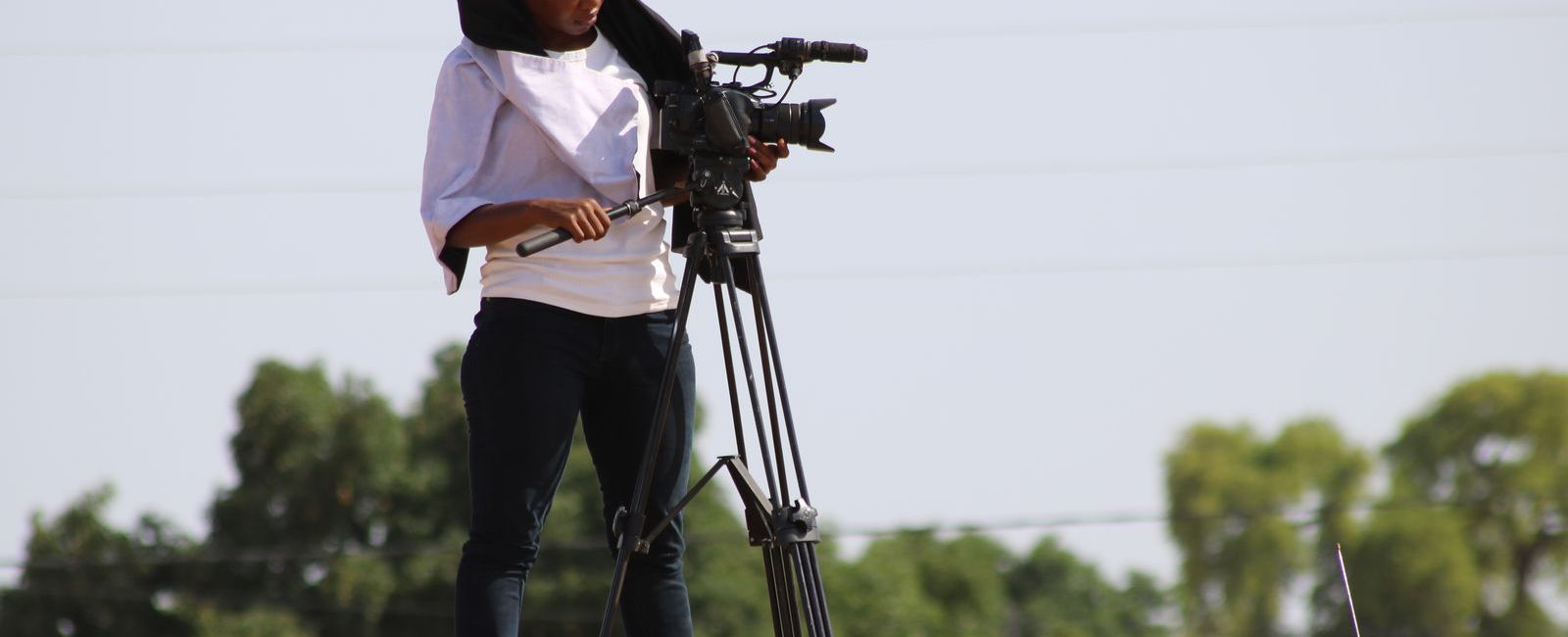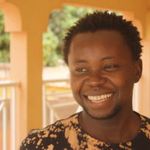

She is Chadian and has lived in Burkina Faso for eight years. Nekouanodji Eve-Noëllie Djébolo, 26, is a filmmaker who graduated from the Higher Institute of Image and Sound (ISIS-SE) in Ouagadougou. Meeting with a woman passionate about the camera who has established herself in an environment that is still very misogynistic.
Her dressing style makes her look like a tomboy. An alert approach, Nekouanodji Eve-Noëllie Djébolo is tireless and present on almost all film sets in Ouaga. The young camera operator wants to stay in Burkina Faso to gain experience before returning to her native Chad.
Nekouanodji Eve-Noëllie Djébolo flew to Burkina Faso after bagging her literary baccalaureate in N’Djamena in 2015. She trained in Ouagadougou, the capital of African cinema, and got a degree in Camera Operator (OPV). She commands admiration in the world of cinema. Women film directors are known in the trade but women OPVs? they do not run the streets. This specialty is still dominated by men, some of whom do not easily accept women. “There are some who accept you easily, who are willing to encourage you and who are happy to see a woman in such a field. On the other hand, others do not accept. They find it abnormal for a woman to do the same job as them. They tell you clearly that this is not a woman’s job; You don’t belong here,” she sadly testifies. This perception doesn’t make it easy for women like Eve to pursue a career in this field.
Victims of misogyny and other contemptuous considerations, women have to work ten-times harder to be accepted, at the expense of their health: “Women are already considered weak, it means that you do not even have the right to be sick. Even when you are, you’re afraid to say it. You hide your pain to be able to work because it only takes one small thing for them to jump at the opportunity to say that she is a woman so she is fragile”, she confesses.
In addition to these difficulties related to her professional integration, the sexual harassment that often plagues the film industry must be taken into account. Even if the young woman says she has not been a victim, she nevertheless recognizes that it is “recurrent”. According to her, women should only impose themselves through their work.
Fruit of migration
Eve is a product of cultural mixing. She feels as Chadian as she is Burkinabè. “Burkina Faso is part of me. This country has given me so much and adopted me,” she said. Through her competence, she has participated in the realization of sixty films between Nigeria, Ghana and Burkina Faso, the most popular of which are: “Massoud” by Emmanuel Mbaide Rotoubam; and “Ça tourne à Ouaga”, by Irène Tassambedo.
In November 2021, she participated in the 6th edition of Focal d’Afrique, an international meeting of photography (Ouagadougou) where she won two consecutive prizes.
As a result of migration, Eve, who is also an Ambassador for the African Union (AU), believes that migration must be carried out in compliance with international laws and regulations. If for her, the human being has the right to go wherever they want, it must be done without taking risks. She is confident that humans can realize their potentials everywhere and contribute to development, wherever they are. “I live in Burkina Faso and I work for its development. In the same way, I tell myself that someone from another country can find themselves in Chad and also work for its development,” she explains. On the other hand, she protests against the difficult free movement of goods and people between African countries, which she finds “distressing” and “discouraging”.
The bitter experience of “rackets”
Victim of the bitter experience on the Niamey-Ouaga axis in February 2022, she says: “At each stop, you are made to pay and you do not know why you pay,” she complains. She recalls: “I was once returning from Niger and we stopped at a post where we were each asked to pay 10 thousand CFA francs. I told them I had no money. When I refused to pay, I was threatened before I got off the bus with my luggage. I told them that I would spend the night with them, then I would take pictures of their post and post on the Internet explaining what is happening. That’s how they let me go.” The young lady explains that there were eighteen border posts and that at each post, passengers had to pay five thousand or ten thousand FCFA. “What’s even more unfortunate is that you can go through all these security positions without travel documents, but if you have money, they let you through. You can go wherever you want,” she said disappointedly. And to continue: “on the other hand, you can have all your travel documents but without money, you will have all the problems”.
Talking about the security situation in her host country, Eve laments the fact that since 2015, Burkina Faso has been the subject of terrorist attacks that have caused several military and civilian victims. “It’s humanly unbearable,” she deplores.
Views on Chad
More than three thousand kilometers from her country, Eve closely follows the political turmoil. 2022 was punctuated by a succession of killings in Chad. The latest is the massacre of October 20, 2022 where at least 200 people died, according to civil society organizations. On this day termed as Black Thursday, the populations of several cities (N’Djamena, Doba, Bongor, Koumra, Sarh …) came out massively to oppose the extension of the military transition in Chad. They see in this maneuver a dynastic power that is being established in their country, something unacceptable to them.
It’s “revolting,” says the technician with a melancholic demanure, describing the event as “painful”, “sad” and “desolate”. However, she does not lose hope and believes that another world is possible. She dreams of positively impacting the world through her commitment and work. Great protector of the environment, she runs an association called “Green Woman” which aims not only to educate young people to protect the environment, but also to contribute to the development of the girl. “If through my images I can better educate the world, change it positively, that would be my greatest reward,” she concludes.




